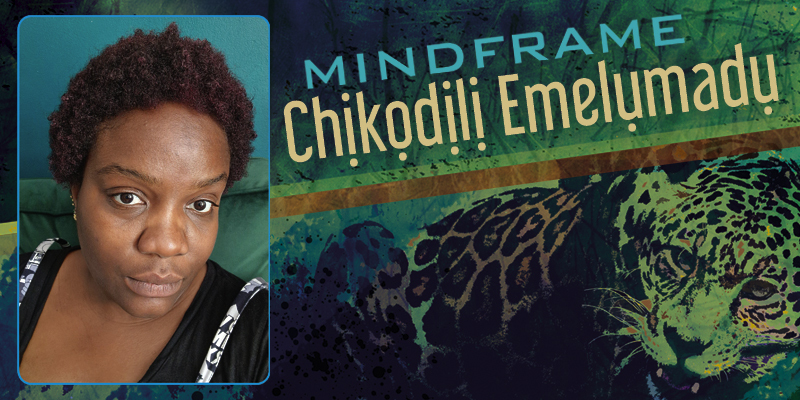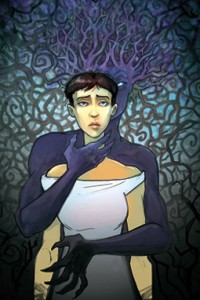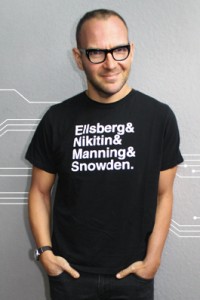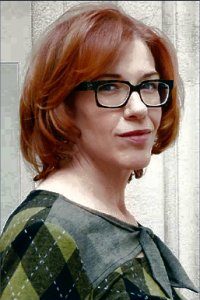Chịkọdịlị Emelụmadụ: Mindframe
CHỊKỌDỊLỊ EMELỤMADỤ was born in Worksop, Nottinghamshire, UK, and raised in Awka, Nigeria. She attended boarding schools there, and went to college at Nnamdi Azikiwe University in Nigeria, graduating with a BA in English language and literature. She returned to the UK in 2004 and attended the University of Newcastle upon Tyne, where she earned a Master’s in Cross Cultural Communications and International Relations. She went on to earn a postgraduate degree in Journalism at Harlow College, and worked as a journalist for the BBC World Service before turning to fiction.
She started submitting stories in 2013, with work subsequently appearing in Apex, Omenana, and other SF magazines and anthologies. ‘‘Candy Girl’’ (2015) was a finalist for the Shirley Jackson Award, and ‘‘Sin Eater’’ (2019) won the Nommo Award. ‘‘Bush Baby’’ (2015) and ‘‘What to do When Your Child Brings Home a Mami Wata’’ (2018) were both finalists for the Caine Prize for African Literature. She served as a juror for the Shirley Jackson Awards in 2018 and 2020.
Her debut novel Dazzling won the inaugural Curtis Brown First Novel Prize for a work in progress, and was published in 2022.
She lives with her children in Newhaven, East Sussex, England.
“I grew up in Nigeria, surrounded by books and by reading, because my parents – especially my mother – were voracious readers, and my uncles and my auntie were too, because their dad was a teacher. They grew up around books. My dad’s father was a catechist, a clergyman in the church, and his mother was a farmer. They were also surrounded by reading material, but it was things like The Book of Common Prayer and the Bible, all the liturgical stuff. My dad and his siblings know all that stuff by heart, even the Hymns Ancient and Modern. The result was that I learned how to read really small print, because my father had a lot of religious texts, but he also had a lot of medical and surgical texts. My parents both had an affinity for the Encyclopedia Britannica, so they had the children’s and adult versions. There was a lot of onionskin paper and really small print in my childhood.
“My parents had this unofficial salon they used to run for their friends who were lecturers and authors, and they used to do recitations of their poetry and stuff like that. My father was sort of a patron for the arts – clergyman and lecturers, and people in academia, never really paid when they sought treatment at my dad’s hospital, because he had a great affinity for their work. My dad’s a surgeon, but he doesn’t like the reputation that surgeons get, which is that they’re butchers with no finesse. His own love of the art comes in being able to make the neatest sutures. A lot of his friends were lecturers who were frustrated novelists and frustrated poets – when I say frustrated, I mean in publishing at the time. In Nigeria, publishing was great in Chinua Achebe’s time, in the ’50s, ’60s, and ’70s, but towards the ’80s and ’90s, things died off a bit, and my parents provided salons for people to share their work.
“I wasn’t the child star in those salons because I have a sister who is four years older, so she was the one that was entrusted with the recitations and the epic lines of poetry. I used to wait until it was my turn, and I ended up doing debates and traditional dances, so that was more my forte. Writing was a more personal thing – it wasn’t something I liked to share because it felt like, though other people were allowed to indulge in their love for the arts, it wasn’t a particularly viable field for us. We came from two medical parents, and while we were allowed to read as much as we wanted, storytelling, writing, wasn’t something I thought I could do [as a career] – for good reason, because it wasn’t allowed. Storytelling was seen by my parents as a frivolous thing: ‘Other people can do it, but you have to do something solid, with a clear pathway that will lead to success.’ My writing was very private; it was something I did in leftover exercise books, and I practiced in secret. I read everything – everything there was to read. The practice of writing was a joy for me, because I could experiment quite freely with anything.
“I’m not big on censorship; I believe there are some things that an immature mind cannot properly conceive or cannot properly digest or assimilate or even parse. At the same time, I don’t allow my children to read now the way that I read then, because I read some stuff that was not appropriate.
From ages seven to about 16, I read stuff that I had no business reading. But you could say that that led me down the path to being the sort of writer I am. I would write something and people would say to me, ‘That’s a little gory, isn’t it?’ I had nothing with which to compare – growing up in Nigeria, there’s no censorship between what children should see and what they shouldn’t be reading. I had all of this reading material at my disposal, but I wasn’t able to decide what was appropriate and what wasn’t. There’s some stuff I’ve gone back to read as an adult, and thought, ‘Ooh, I can’t believe that I read that!’
“I wouldn’t change my childhood for the world, because it allowed me the space to spread my so-called wings. As I’ve grown through my twenties, thirties, and coming to forty, some of that childhood stuff comes back, and with the experience of adulthood, you can see how to rework memories or experiences you didn’t realize were in there all along. Sometimes I have a weird smell or something, and a memory comes to the fore, or I hear some music, and it connects me to something else. I saw so many dead bodies as a child, but I haven’t seen a single dead body as an adult. People would just die. We went to so many funerals as children in Nigeria because people died, and there’s no sanitized version of the afterlife. It’s like, ‘Yeah, you’ll die – this is the person’s body, here. Here it is. You pay your respects.’ It’s no surprise that Dazzling deals with death and a burial. It’s just commonplace to see death as well as life, and funerals along with celebrations of marriage and naming and all of that.
“My kids have never seen a dead body, and they didn’t see their little cousins when they were just born. There’s a huge dichotomy between my experiences and theirs. For me, for the kind of mind that I have as a writer, I needed that freedom to obsess and grow and just play, because a lot of storytelling is about playing and experimentation.
“Just before my GSCE, I switched from being a science student to an art student, because in Nigeria you can’t do both. The reason I switched was that with Biology I was always an A+ student, but Maths was not great. I have since worked with children who have special education needs, and now I wonder if I don’t have dyscalculia, because the abstract concepts are very hard for me to grasp. Biology, being the science of living things, was a very realistic science for me, so I had no problems with it. Physics was okay, but Maths and Chemistry were just like, ‘What?’ If I had to concentrate on Chemistry, then I did badly in Physics. I couldn’t do both at the same time. I got flogged by my dad for coming home with the poor results. He woke me up quite early and asked me to come downstairs, and laid out my results. For a lot of Nigerian parents, if you do badly in school, it’s a reflection on them. ‘How can you be getting As and Bs and then getting barely passing grades in these? It doesn’t make sense that you would do excellently in some and not so well in others, so you must be doing this on purpose.’
“My mom was being good cop, and my dad was being bad cop with the cane. My sister came downstairs and said, ‘Before you do anything, give me a second.’ She went back upstairs and came down with these sheets of paper that I had written stories on and hidden – in fact, I’d ripped them up, and she’d found them in the bin, glued them together, read them, and saved them for herself. She gave that to my dad and said, ‘Before you do anything, I think you should read these.’ I remember him sitting down with the cane in his hand – with which he was going to tear me to ribbons – and he started reading, and his shoulders started to fall. As he was reading each page, he’d give it to my mother to read, and then he said, ‘Just go… we’ll talk about this later.’ Then we didn’t talk about it anymore. As school started, he drove me to boarding school, went straight into the guidance counselor’s office, and said, ‘I know it’s late to change her specialty, but I would like to switch her to arts.’ That was it.
“I didn’t even get published until my twenties because I thought I had to pay for the disappointment. I went into so-called ‘serious arts,’ so that was how I ended up in journalism and working for the BBC – I needed that badge of honor, to show my parents that I wasn’t useless. That was what made me go into the master’s degree that I did, which I didn’t even want to do. If I’d had more guts, I would have gone straight into creative writing. I did my master’s in the UK but I did everything else in Nigeria. I tried for a master’s degree here in Science Fiction Studies at the University of Liverpool, but my science fiction knowledge wasn’t deep or grounded. It was mostly on the fringes, with stuff I read in my uncle’s room, some of the Commando comics had Nazi experimentation in them, normal superhero stuff like Spider-Man, and things from secondhand book markets. Science fiction wasn’t a massive part of our household, and I wasn’t accepted because my essay wasn’t strong enough. I did another master’s, and then a postgrad in journalism, and then ended up at the BBC. While I was at the BBC I thought to myself, ‘Nah… don’t do this anymore!’ I was telling other people’s stories, and I don’t believe that’s what I was put on this Earth to do. I was put on this Earth to tell my own stories in the best possible way that I can.
Interview design by Francesca Myman
Read the full interview in the June 2024 issue of Locus.
 While you are here, please take a moment to support Locus with a one-time or recurring donation. We rely on reader donations to keep the magazine and site going, and would like to keep the site paywall free, but WE NEED YOUR FINANCIAL SUPPORT to continue quality coverage of the science fiction and fantasy field.
While you are here, please take a moment to support Locus with a one-time or recurring donation. We rely on reader donations to keep the magazine and site going, and would like to keep the site paywall free, but WE NEED YOUR FINANCIAL SUPPORT to continue quality coverage of the science fiction and fantasy field.
©Locus Magazine. Copyrighted material may not be republished without permission of LSFF.








